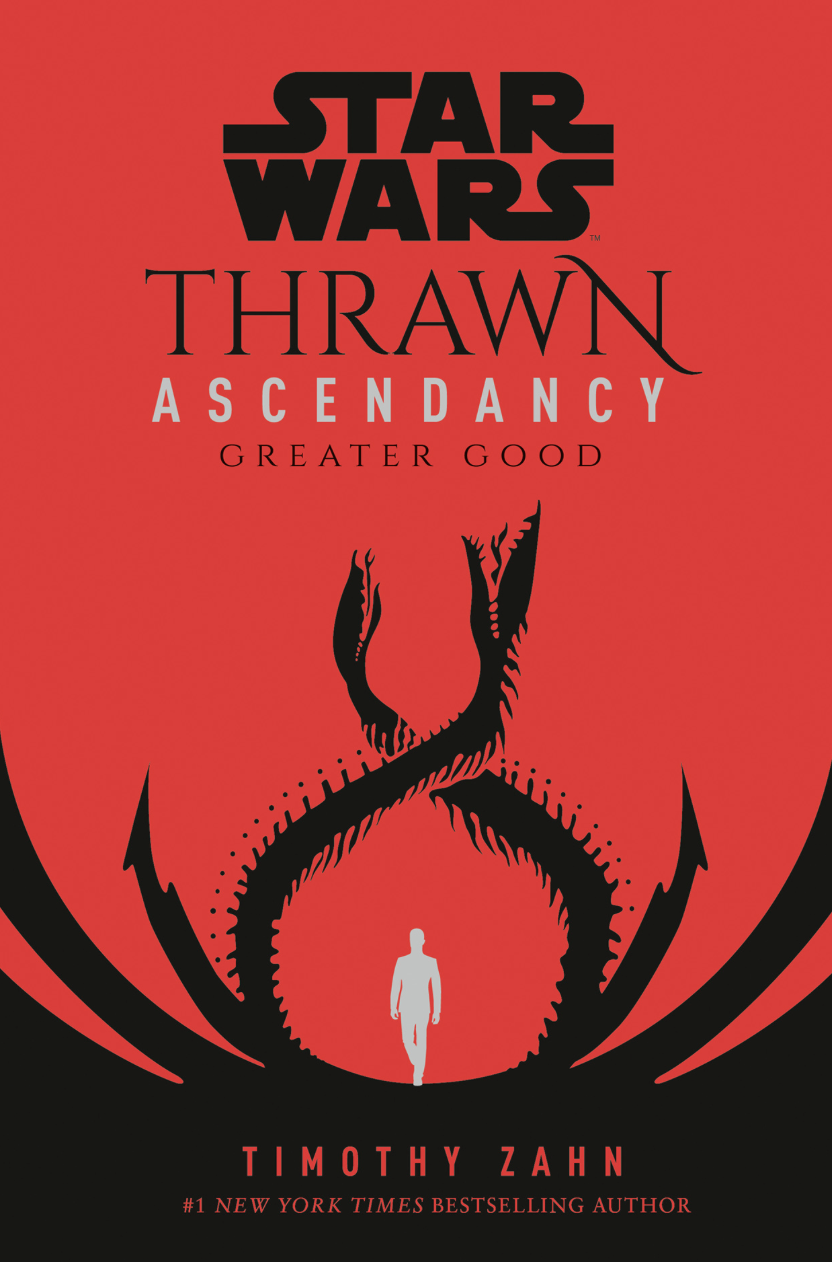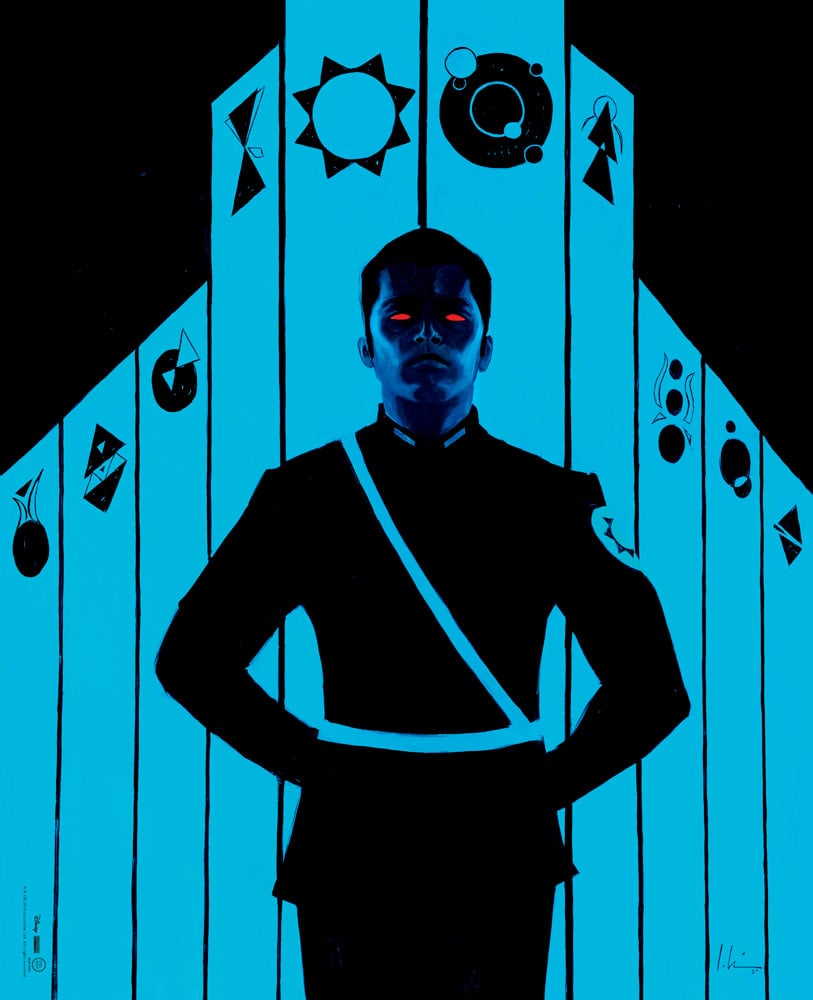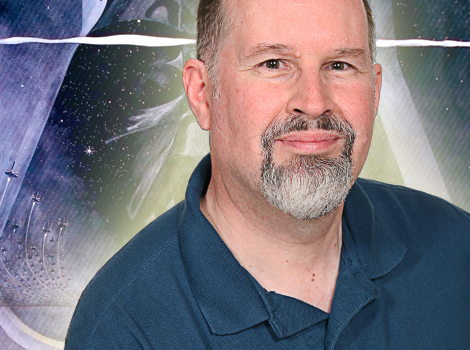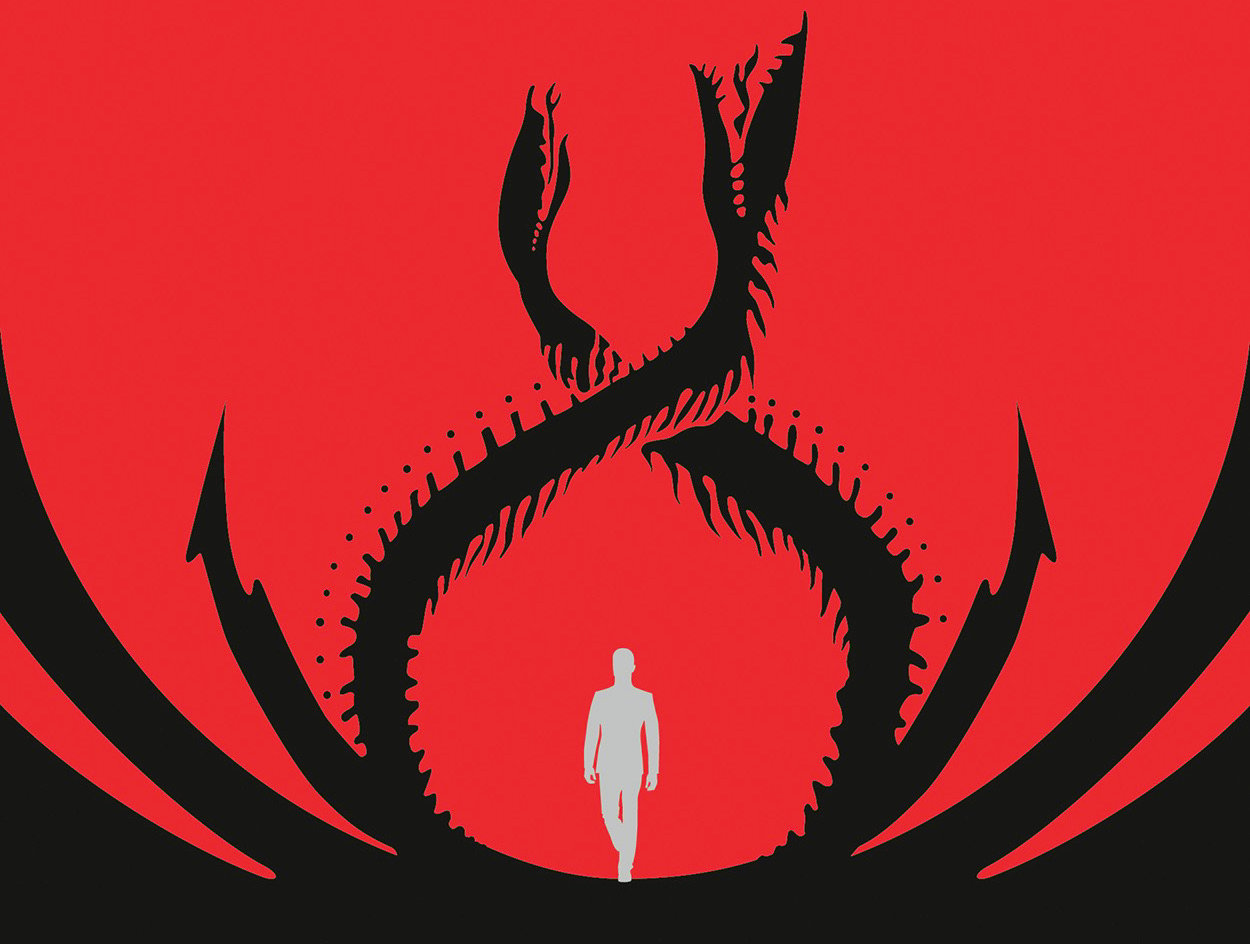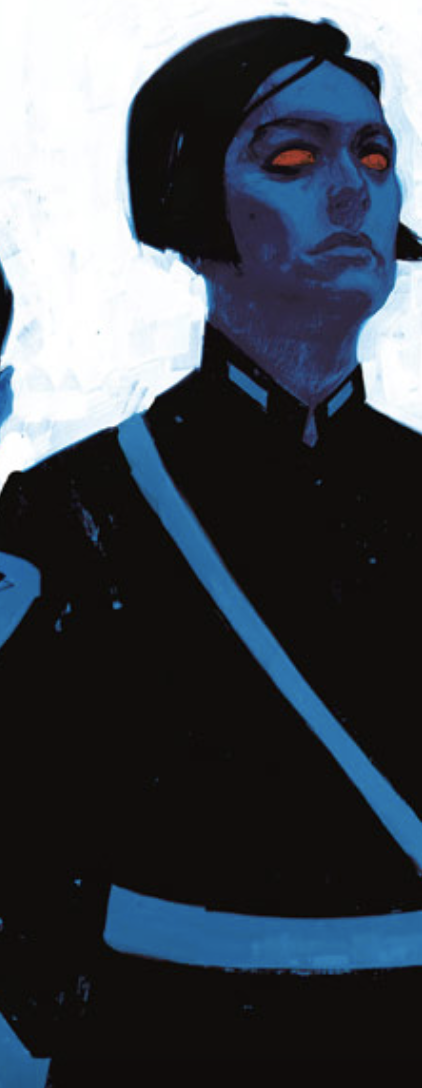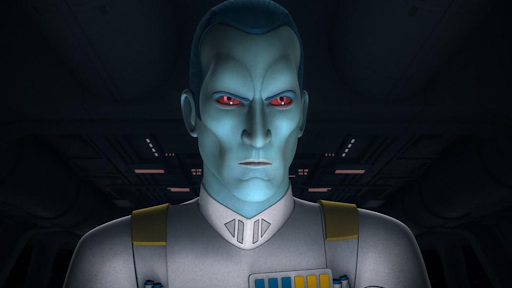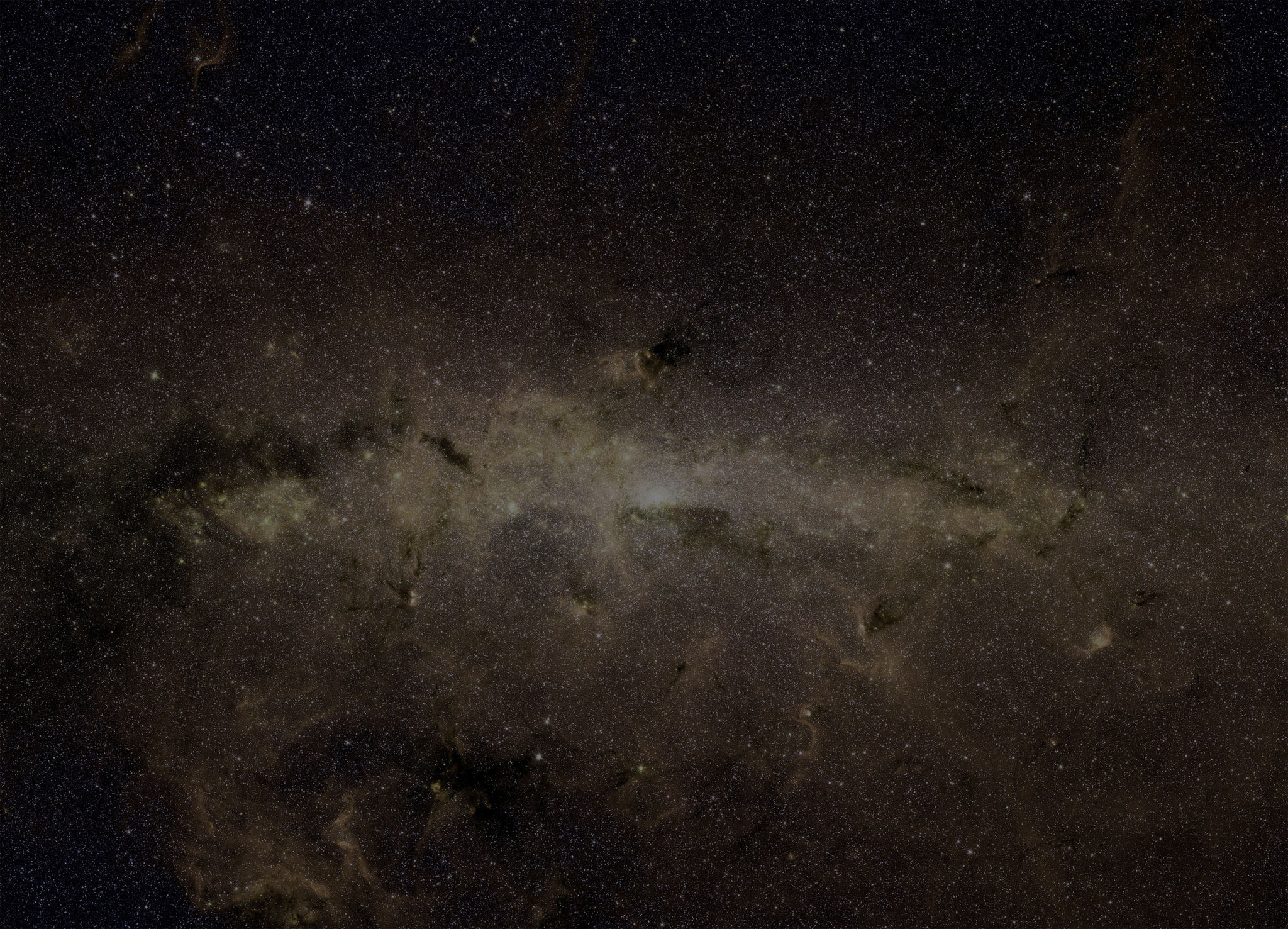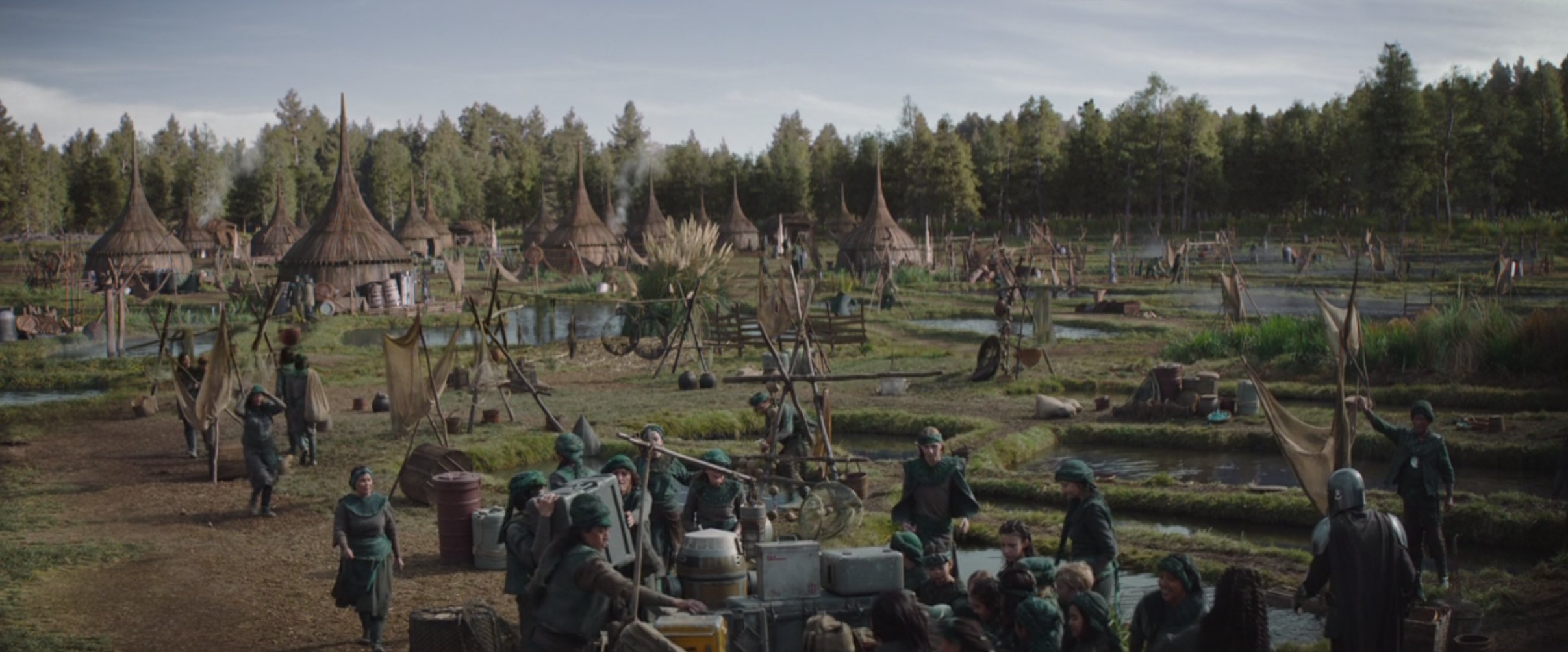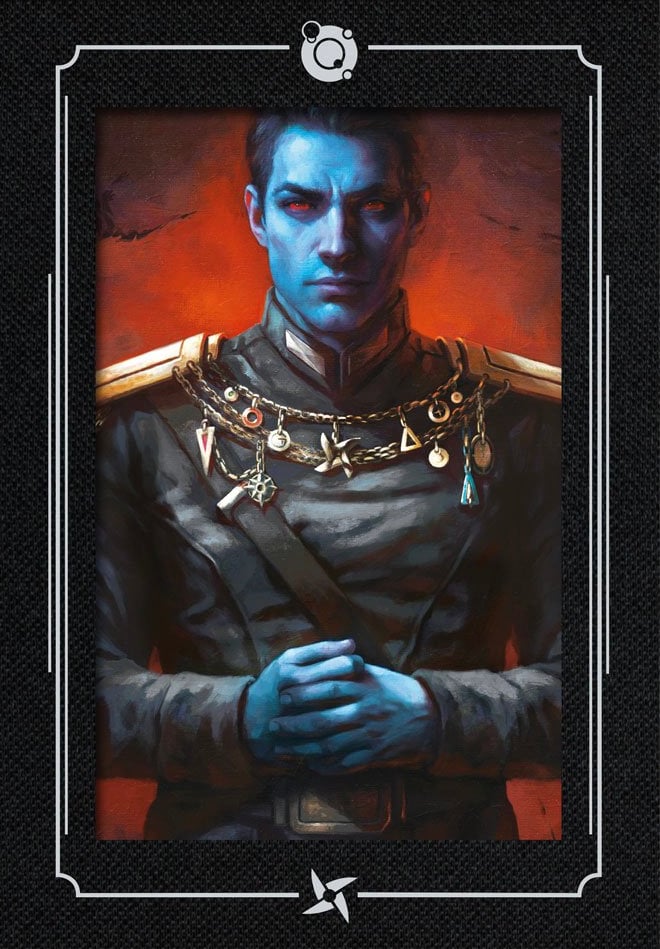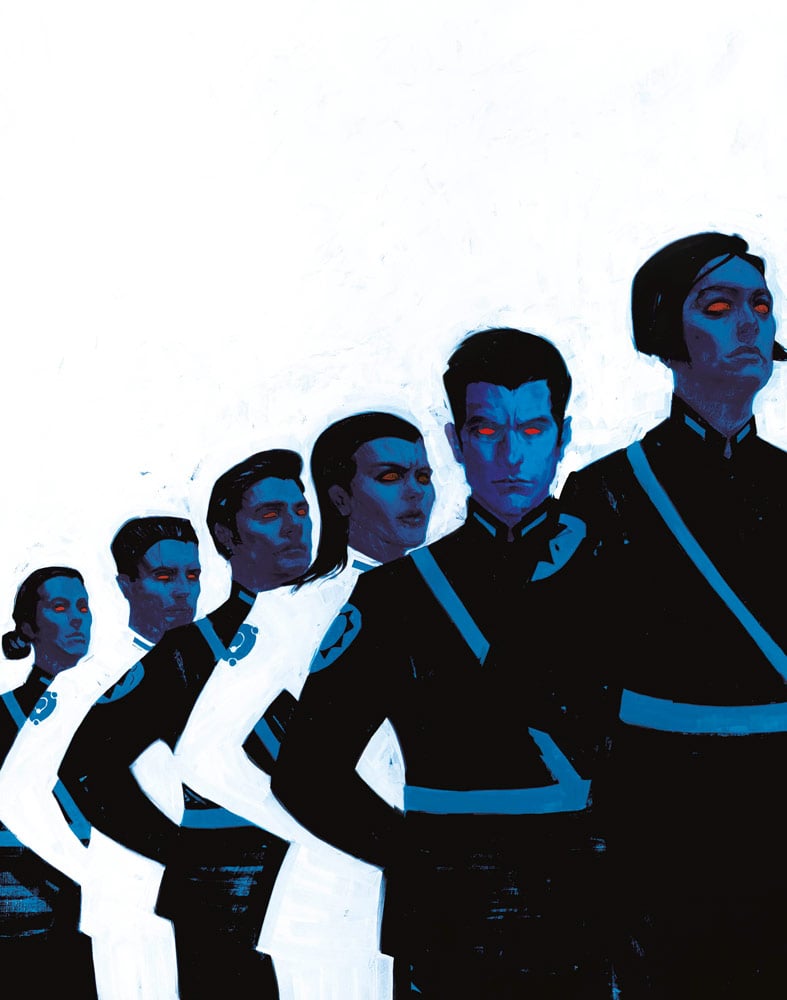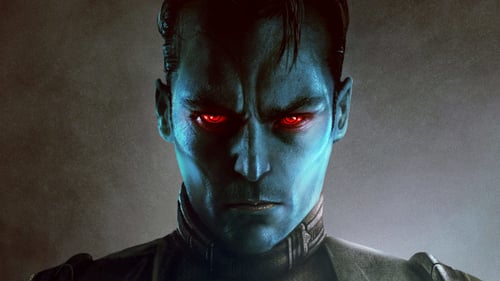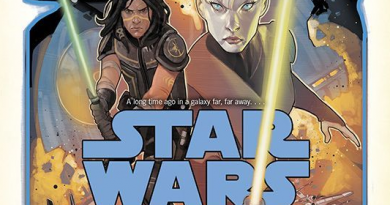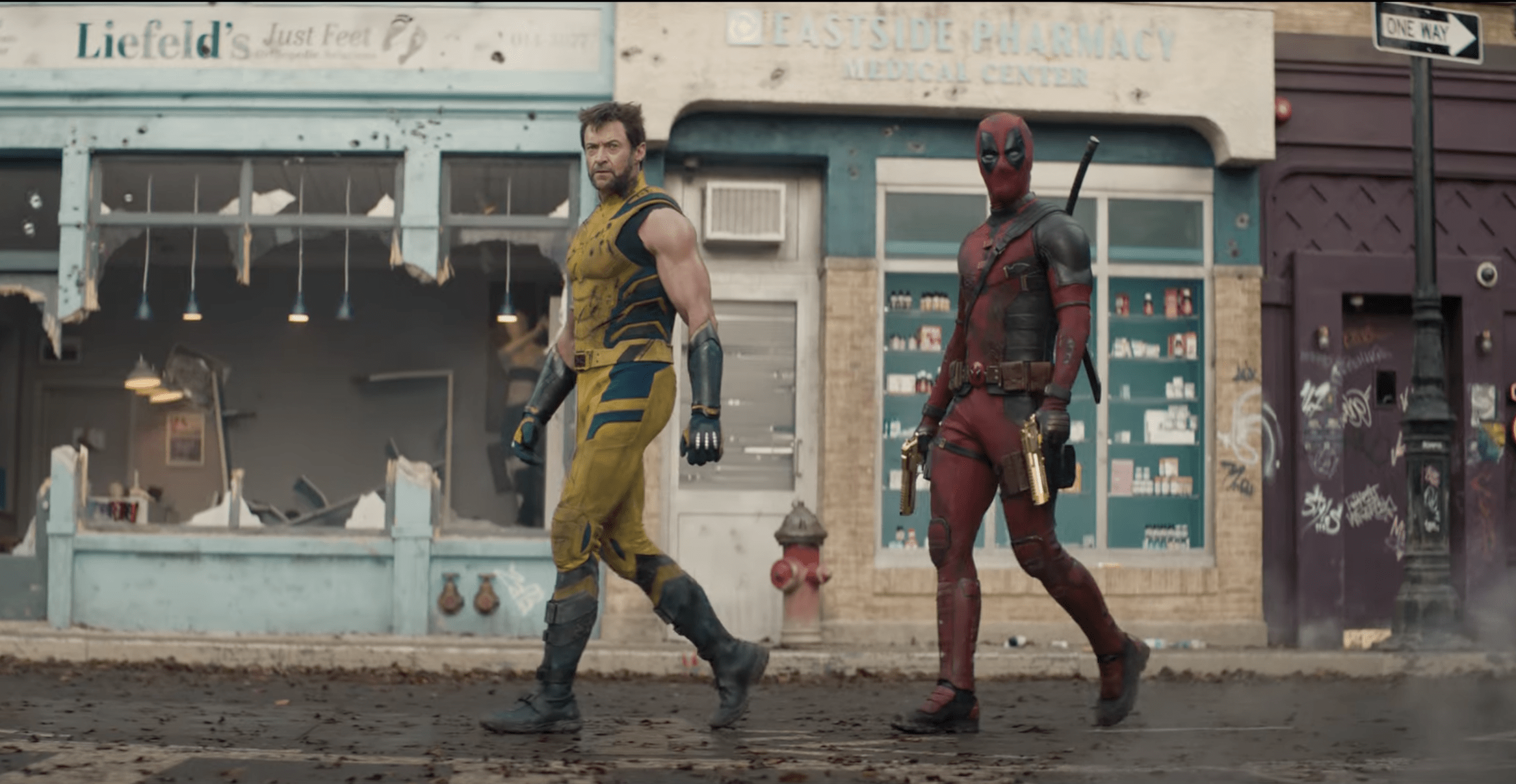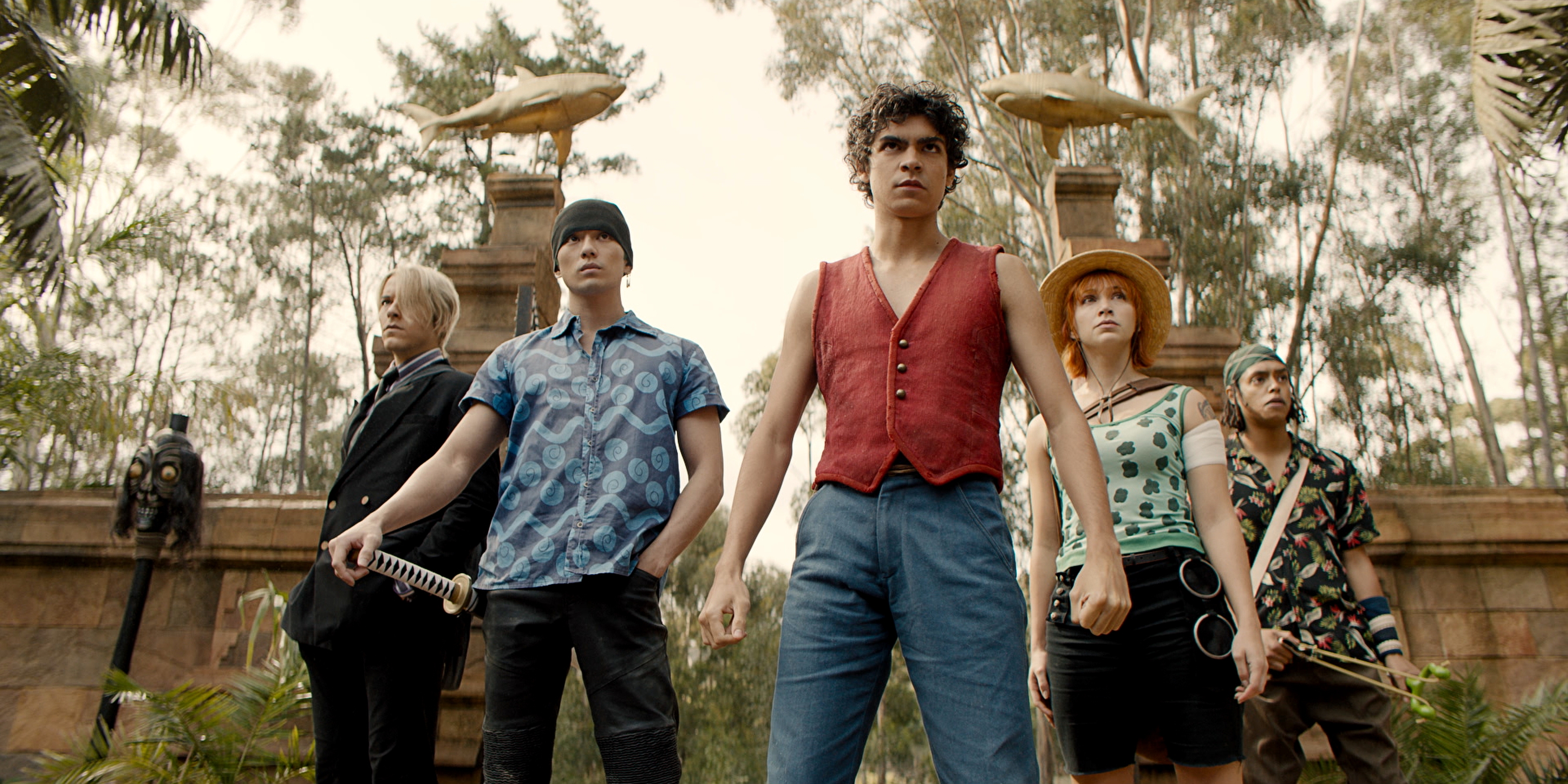Review – Family Ties Across the Stars in Thrawn Ascendancy: Greater Good by Timothy Zahn
Timothy Zahn continues to take us beyond the galaxy far, far away in his second entry to the Thrawn Ascendancy trilogy, Greater Good. The preceding novel, Chaos Rising, took us into the Chaos – a turbulent part of the Unknown Regions which the Chiss and many other alien species call home. Because this region is so unstable, most alien civilizations have only heard of the mighty Chiss Ascendancy. By the end of Chaos Rising, Chiss anonymity was no more after being drawn out by a mysterious figure and their proxies. And one of the Chiss’ most brilliant military and investigative minds, an aspiring captain from a powerful Chiss family called Thrawn, knew things would never be the same. In Greater Good, it’s a family affair.
Be warned, this review will contain spoilers for both Great Good and its predecessor, Chaos Rising. If you haven’t read the first book and just want to know what happens, head over to my review or take a look at the discussion between James Baney and I. If you’ve read Timothy Zahn it goes without saying he doesn’t stop in his latest entries to fill in the blanks or ponder the preceding story. Greater Good is just as dense as Chaos Rising and moves twice as fast, so you’d do well to have the events of the first book on the brain before diving in.
Keeping it spoiler-free, Greater Good is a joy. It’s an almost entirely new ensemble of characters, both Chiss and a new alien species who’ve slid in where the Nikradun were – puppet proxies of the mysterious Jixtus, who has been engineering the slow assault against the Chiss. We also get a much closer look at the Chiss families beyond the Mitth and Iziri. This book speeds up the storytelling and is actually longer than Chaos Rising but like most solid second acts feels like it’s just beginning in the final chapters, setting up what will certainly be a thrilling close to the trilogy in the forthcoming Lesser Evil. The book stumbles a bit in spots and the fact Zahn trusts his readers works as both a blessing and a curse. The catalogue of alien species and worlds in the Chaos expands significantly it can be difficult to keep track of who is who and their motives.
My theory Timothy Zahn kept the drafts or outlines of this trilogy in a filing cabinet somewhere, just waiting to get the greenlight from Lucasfilm and Del Rey, feels more probable than ever. Greater Good feels primed, like a roaring muscle car taking you on a scenic drive through the galaxy. Though Thrawn isn’t quite as front and center in this story as he was in Chaos Rising, there is no doubt where all plot threads in this tapestry lead. Zahn’s world building continues to be a marvel and he gives you exactly what information you need to connect pieces of the story. As mentioned earlier, this can hinder the pace of the story in some chapters but didn’t take away from my overall enjoyment. I don’t doubt Zahn could write fifty more books about Thrawn or the Chiss if requested.
So, go enjoy Greater Good and come back to see if you agree with me. For those who don’t mind a few spoilers, we’ll press on, but to those headed back to known space, we wish you well and happy reading. SPOILERS AHEAD….
The story begins with Thrawn and Ar’alani finishing off some of the Nikardun ships. One of the small problems I had with Greater Good is the Nikardun are essentially relegated to set pieces in this story. The opening of the story presents them as problematic to the Ascendancy but they quickly become background noise once the story gets going. The first chapter is one of the few times they are a clear threat. I didn’t sense much time has passed between these events and the conclusion of Chaos Rising. Zahn is much like Jixtus in the sense that the Nikardun have served their purpose and the story moves on without them and Yiv the Benevolent (a great villain in my opinion, but all we know of his fate is he’s being interrogated).
We are introduced to a new Senior Captain named Lakinda, or, Xodlak’in’daro, a member of the Xodlak family, once one of the Ruling Families. There are nine Ruling Families but there were once ten and that’s an important detail to note at the beginning of this story. Lakinda is certainly the standout character of Greater Good. She’s a merit adoptive of the Xodlak family, which means the Xodlak took her in from a lesser family. We get the sense right away Lakinda is not only proud to be a protector of the Ascendancy, she’s also proudly a Xodlak and has worked hard to get the rank of Senior Captain.
Despite the commonalities Lakinda shares with Thrawn, she doesn’t trust him. Their relationship is much colder and professional than other Chiss we’ve seen warm-up to Thrawn. Like many Chiss, Thrawn’s methods baffle and frustrate Lakinda, as he often walks to the edge of insubordination but executes last-second maneuvers that explain everything. Much like Greater Good, little of what Thrawn does makes sense to anyone else until the entire plan is revealed. Lakinda is able to put aside her trepidation toward Thrawn as he demonstrates frequently there is method in the madness of his executions.
While reading the chapters featuring Lakinda, I sensed Zahn is setting her up for a larger role in Lesser Evil and possible Chiss stories beyond this trilogy. Her place in the Ascendancy changes dramatically by the end of the story and I won’t go into detail because it’s a great surprise among many Zahn sprinkles into the last pages of Greater Good. Lakinda doesn’t just spend the entire book reacting to Thrawn, though. We learn she is deeply loyal to her family and this is demonstrated in the final act. Lakinda is faced with an impossible situation in the climax of Greater Good (I’ll get there) and her willingness to sacrifice and believe in the good of her people pays off immensely.
Once the Nikardun are dealt with, Thrawn moves deeper into the chaos, encountering a refugee ship filled with an alien species called the Magys. We learn the Magys planet has been engulfed in civil war and the refugees believe their world is dead. They are a Force-sensitive race, though their beliefs drive them to more extreme practices to touch the Force. Specifically, the Magys matriarch (of the same name) believes they must die by suicide to join the Force, which they refer to as the Beyond. Thrawn realizes their Force-sensitivity and puts their matriarch in the care of Thalia and Che’ri, hoping the current and former sky-walkers can help find common ground.
Thrawn’s concern with the humane crises in Greater Good is a pleasant surprise. These stories so far paint a much more sympathetic and almost altruistic portrayal than the Thrawn we met in Rebels or the Legends novels. Keep in mind, though, this is Thrawn in the very early days of his career and this trilogy captures a very specific time in his life. As heartening as it is for Thrawn to make the Magys survival one of his top priorities in Greater Good I’m nervous we are going to see a VERY different Thrawn in the future Star Wars stories. “The Jedi” episode of The Mandalorian makes me suspect the legendary Chiss becomes much more lethal and ruthless, since once the acolyte Ahsoka Tano engaged displays some horrendous methods of governing I assume he approves.
Nevertheless, Zahn makes Thrawn the caretaker of this society on the verge of self-annihilation and it puts him on a path to collide with the plans of a puppet-master in the shadows, a being called Jixtus.
From Lost Stars, the Aftermath trilogy, and Snoke’s vague references in The Last Jedi expanded edition, the Unknown Regions sounds like a brutal and unforgiving place, filled with conquerors and ancient civilizations who operate in the shadows of the unknown. Jixtus sounds like he has been involved with many of them. What little we learn about the character demonstrates he’s very similar to Thrawn, only he doesn’t like to get his hands dirty. We witnessed in Greater Good how effective he is at using proxies to do his bidding and will bring sacrifice an entire society just to get insight into the Chiss.
The “Memories” interludes of Greater Good provide much more insight into exactly how Jixtus works. These “Memories” feature conversations between Jixtus and one of his best agents of Chaos, Haplif. Jixtus broad strategy is a basic divide-and-conquer but the devil is in the details and there are a lot of them. Haplif seems to be just one of the many agents who travels to a world, manipulates all the right people in power, and before they realize it, destroy themselves with civil war, leaving the remnants of their societies ripe for Jixtus and his forces to assimilate into their conquest of the Chaos.
Haplif is the star antagonist of Greater Good but there’s no doubt every terrible thing he does is to appease Jixtus. From their conversations, we learn the most recent world they sent plunging into war was that of the Magys. So, once again, Thrawn is unwittingly pitting himself against Jixtus, while neither of them are yet aware of the other. The mutual anonymity is gone by the end of the book, with Jixtus learning who Thrawn is and why he should be VERY concerned about the Senior Captain.
It’s safe to call Haplif’s mission one of manipulation, as he befriends two young Chiss on the equivalent of an interstellar “walkabout”. Yoponek and Yomie are two great supporting characters, exploring the planets in the Chaos, in search of their own cultural enrichment. It’s an interesting societal tradition to learn about the Chiss and their value of exploration so a young person can decide what they want for their life in the Ascendancy. Haplif takes advantage of the curiosity Yoponek and Yomie have about his race, the Agbui. Offering them free passage on his ship and a chance to embed themselves in his tradition, Haplif plays the long game of getting them to share as much as they can about the inner workings of the Chiss.
Jixtus’ divide and conquer strategy has floundered against the Chiss because of their objectivity and devotion the betterment of their society overall. He and Haplif haven’t been able to find a Chiss in the position of power they can exploit. Yoponek shares some information about a rural farming planet called Celwis and its discontent councilor, Lakuviv. Haplif sees the opportunity to exploit Lakuviv, who is also a member of the Xodlak family who’ve fallen from the graces of the Ruling Family class.
Celwis is a part of the Ascendancy we haven’t seen. It’s an agricultural planet and you get the sense things move a lot slower there than they do in the rest of the Ascendancy. Think of the above picture from The Mandalorian as a placeholder, perhaps a bit more arid and technologically advanced. It’s a Xodlak family stronghold and we meet two family members with very different outlooks on their place in the Chiss hierarchy. Lakuviv is ambitious and frustrated he and his family have been relegated to ruling a farming planet. This blind ambition to climb back into the graces of the Ruling Families will undo Lakuviv and he’s as insufferable as he might come across in this description. He has no problem sacrificing members of his own family for what he feels is the greater good (This novel’s title is relative to so many motives). It’s shocking how quickly Haplif inflames the discontent inside Lakuviv.
We meet another Xodlak, named Lakphro, who accepts the life he makes on Celwis. He is content to farm his plot of land and raise a daughter with his wife. Unsurprisingly, he is skeptical of Haplif’s arrival. While part of this is a xenophobic reflex, the claims Haplif makes are what cause suspicion. What really stirs things up is when Haplif begins selling jewelry in their local market. When Lakuviv and Lakphro learn independently of each other it’s composed of a rare alloy called nyix. Nyix is rare but more importantly it’s used to build most ships in the Chaos. Haplif claims his world is rich with it. Lakphro is skeptical and manages to pass the jewelry to a friend in the Ascendancy, who says he will get it to Thrawn due to his ability to decode arts and crafts of other civilizations. Lakuviv has other ideas and sees an opportunity for the Chiss to gain a strategic advantage in the Chaos while restoring the Xodlak family name to greatness.
As Haplif hatches Jixtus’ plan, Thrawn continues to peel back the layers of who is behind the destruction of the Magys world. This inevitably leads him closer to Haplif and the remnants of the Nikardun. Unfortunately, this is where a lot of the plot becomes convoluted. Where Chaos Rising slowed down when Thrawn encountered other cultures, Greater Good seems to speed-up. The Nikardun return, but they are often pretending to be someone else, which adds to an already stuffed cast of species, planets, and cultures. Despite some very convoluted chapters, there are some wonderful moments where you truly feel like you are inside Thrawn’s head as he comes up with some of his elaborate plans in real time. Thrawn often finds himself allowing others to spring “traps” so he can learn their strategies, becoming an audience for Jixtus’ puppet show and sometimes taking the strings himself through his actions. The inversion of Thrawn going from audience to participant in Jixtus’ manipulation is a clever inversion by Zahn. Though Thrawn is politically clueless, he has a knack for getting allies and enemies to do what he needs them to in battle.
When Thrawn gets a hold of the jewelry, he realizes it was constructed by the Magys. At this point, Lakuviv has imprisoned the head Patriarch of his family and is posing as him, ordering the entire Xodlak family to form their own fleet and pursue the ore-rich planet for their own glory. Lakinda is part of this and she can tell something isn’t right with the orders. She makes contact with Thrawn and he realizes what Haplif is doing. The Xodlak family aren’t the only Chiss family looking for greatness. Haplif has ensured other families got a hold of this alloy and many of them have rallied their own fleets, hoping to be the ones to plant the Chiss flag on the ore-rich world.
And the climax of this story is where the Chiss shine. I won’t get too into the details because the last act of this book is the best. To be honest, the reader is in the dark through most of this book and it’s almost comparable to a whodunnit. Where the Chiss succeed is the see the greater good. A common threat presents itself while each family is on the verge of greatness and instead of giving into greed, they unite and protect the greater good. The dichotomy of family is omnipresent in Greater Good. Sometimes our families can frustrate, enrage, and confound us all. It’s true for everyone who shows up but in the end, they see the common good in each family present and what they must do to protect the rest of the Chiss. Division will only drive them further apart and they step back from the ledge of greed and make the selfless choice, once again defeating the plans of a conqueror who ultimately wants the Chiss to do his work of bringing down the Ascendancy.
With Jixtus’ plain foiled, he turns to an old ally, the navigator Qilori from Chaos Rising. Qilori has warned Jixtus about Thrawn and now the malevolent leader is all ears. We also learn where Jixtus comes from and exactly what he hopes to get out of his conquest of the Chiss. I won’t spoil it, but let’s just say the Chiss have a history that goes back to the yet-to-be depicted Sith Wars. Their involvement and travels in the known part of the galaxy–as well as what they may have brought back and have kept secret–are very concerning to Jixtus. I have a feeling we are going to learn a lot more about this in Lesser Evil.
You may be wondering about Thurfian, the Mitth family member who spent most of Chaos Rising trying to bring down Thrawn. While Thurfian isn’t as much a part of this story, a change the hierarchy of the Mitth family will have huge ramifications for his missing to expel Thrawn. And quite frankly, I’m very worried about Thrawn, who is not in great standing with the Ascendancy by the end of Greater Good. I really wish I could give away more but it would be cruel to spoil the end of this book and the cliffhanger Zahn leaves us standing on. We only have to wait until November, thankfully.
Though I didn’t enjoy Greater Good quite as much as Chaos Rising, it’s still a great read. And as complicated as I made it sound, the book flies by. I read this much faster than any other Thrawn book I’ve reviewed and had a lot of fun. There are many moments where I thought I had things figured out only to have Zahn completely turn them upside down with a single sentence. There is a reason Timothy Zahn is still writing Star Wars after all these years: He’s damn good at it. Even though we are so far removed from the rest of the galaxy far, far away this story is unmistakably Star Wars.
I do wish we’d been given a bit more time with Che’ri, Thalia, and the Magys matriarch. Despite the Magys survival driving Thrawn throughout Greater Good we don’t come away with much of an understanding about who they are. The sky-walkers are badly missed, in my opinion, but when they do appear it’s nice to see them. Also, the ending I won’t spoil hints they will be back in a significant role for the conclusion. I’m really happy Star Wars writers continue to branch out and explore other paths to the Force. I just wish we could slow down and get to know these diverse perspectives of the Force but at least the groundwork is being laid and there is a huge potential for other writers to fill in the gaps.
One more book to go. Chaos Rising helped set the stage. Greater Good disrupted everything and showed us the flaws in Chiss society while simultaneously demonstrating the strong foundations of a greater good all Chiss strive for. Lesser Evil…well, the phrase often implies an impossible choice and like I said…I’m very worried about Thrawn. See you in November.
RATING: 7.5/10
Special thanks to Del Rey for the ARC used in this review. Thrawn Ascendancy: Greater Good is available wherever books are sold.
Kyle Larson lives in Portland, Oregon. When he's not running trails, he's reading and writing.

